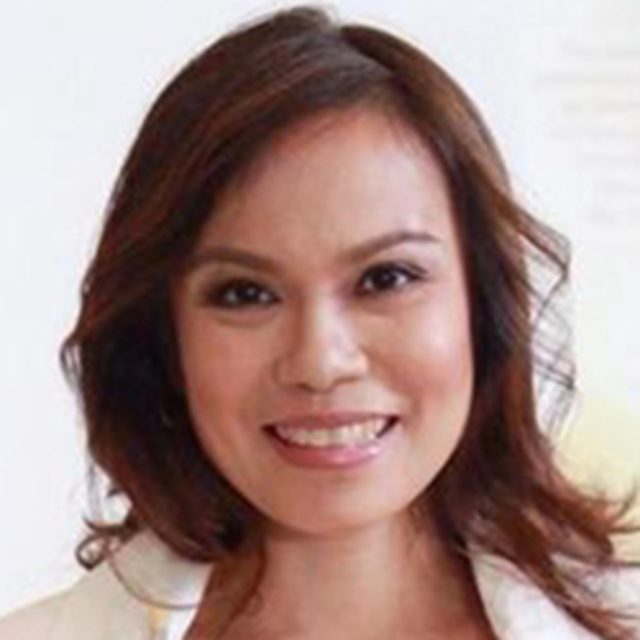SUMMARY
This is AI generated summarization, which may have errors. For context, always refer to the full article.
![[OPINION | Dash of SAS] Humanizing SOGIE](https://www.rappler.com/tachyon/r3-assets/612F469A6EA84F6BAE882D2B94A4B421/img/CF3748C3494042F4A36FADF85AAA42A9/humanizing-sogie-sept-7-2019.jpg)
 When Queenmelo Esguerra was 14, the high school principal suspended her and her friends for leading and organizing a gay group. “I was actually asking my friends to look at my fashion magazines and teaching them how to do a catwalk,” said Esguerra.
When Queenmelo Esguerra was 14, the high school principal suspended her and her friends for leading and organizing a gay group. “I was actually asking my friends to look at my fashion magazines and teaching them how to do a catwalk,” said Esguerra.
Esguerra went home to tell her parents about what happened, and her father would have none of it. “They can’t do that,” her father, a police officer, said.
The next day, Esguerra’s father went to school with her to see the principal, who immediately went into the problem: “Your son is very gay.”
Esguerra’s father replied: “With all due respect, Father, I know my son better than you do. Allow him to grow as who he is; otherwise, he will never reach his full potential. Your only responsibility as the principal of this school is to allow every single student to reach their full potential. Let’s just end this conversation here.”
“Yes, Sir,” the principal replied.
Even if it happened more than 33 years ago, Esguerra remembers that conversation between her father and high principal, word for word.
She had always been accepted by her family, but that day left an indelible mark on her. “The most important person in my life accepted and celebrated me for who I am. I will never forget that,” said Esguerra, founder of Love is All We Need, a collective of LGBTQ+ organizations in the Philippines.
Esguerra shared her story at a recent gathering, where legislators, community leaders, and other advocates came together to launch Humanizing SOGIE, a national campaign that shares stories of Filipinos and the everyday discrimination that they experience. It also includes stories of cis gender (also known as straight) who have experienced discrimination.
Recognizing that there are no legal protection in the Philippines specifically for SOGIE individuals, Humanizing SOGIE will organize a series of community dialogues among the LGBT and allied communities to call for the passage of the anti-discrimination bill that prohibits discrimination on the basis of SOGIE.
“The Humanizing SOGIE Campaign gives a face to the SOGIE experience and makes sure their stories are not left in the margins. Canada is proud to support organizations advancing inclusion and equality in the Philippines,” said Warren Mucci, Canada’s charge d’affaires.
Humanizing SOGIE is supported by the government of Canada in partnership with SPARK! Philippines, Love is All We Need and Propel Manila.
What is SOGIE?
SOGIE or sexual orientation, gender identity, and expression became a topic of national conversation after transgender woman Gretchen Diez was prohibited from using her preferred restroom in Farmers’ Market in Quezon City and sent to the Quezon City Police District’s Anti-Cybercrime Division after she took vidoes of the incident. The videos, which showed Diez verbally accosted and sent to the police station in handcuffs, went viral. Quezon City passed its Gender Fair ordinance in 2014.
Advocates said the issue highlighted the need for national legislation that would prohibit the discrimination and called for the passage of the anti-discrimination bill, which seeks to prohibit discrimination on the basis of SOGIE
Over 20 local government units have gender fair or anti-discrimination ordinances to protect lesbian, gay, bisexual and transgender communities from abuse, exploitation, bullying, and other discriminatory acts that restrict employment, education, and other opportunities for LGBT members. However, there is no national law that provides legal protection for SOGIE individuals.
The latest version of Senate Bill No. 689, the “Anti Discrimination on the Basis of Sexual Orientation, Gender Identity and Expression,” has not been passed in Congress for almost two decades. At recent hearings, several religious and gender rights groups showed support for the bill. Advocates are hopeful that this will galvanize support for the bill.
LGBT-friendly country?
The representation of the LGBTQ+ community in high-profile platforms, like beauty pageants and entertainment, gives the Philippines a reputation for being a gay-friendly country. In 2017, Geradline Roman became the first transgender woman to be elected to Congress.
But there is little acceptance in places where it matters the most: in schools, in government, and among families. A study across 59 transgender, lesbian, and bisexual women conducted by advocacy group Rainbow Rights revealed that they felt a “significant level of invisibility and devaluation” mostly across 3 groups: family, religious institutions, and law enforcement.
Family abuse ranged from verbal and emotional abuse to sexual abuse usually perpetuated by male family members, like a brother or an uncle.
‘Personal, not religious, beliefs’
At the 3rd hearing of the anti-discrimination bill or the SOGIE equality bill, various religious groups against the bill raised concerns about religious freedom and questioned the readiness of the country for such a law.
“No religious denomination can claim a monopoly on values. We cannot base our legislation on religious beliefs,” said congresswoman Roman, who was also at the gathering of advocates.
“These are not religious beliefs but personal beliefs. There is nothing in the Bible that says that you cannot hire a gay man. Let’s stop using religion to discriminate,” Roman added. – Rappler.com
Add a comment
How does this make you feel?
There are no comments yet. Add your comment to start the conversation.